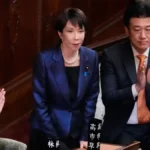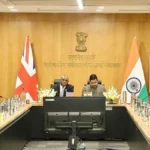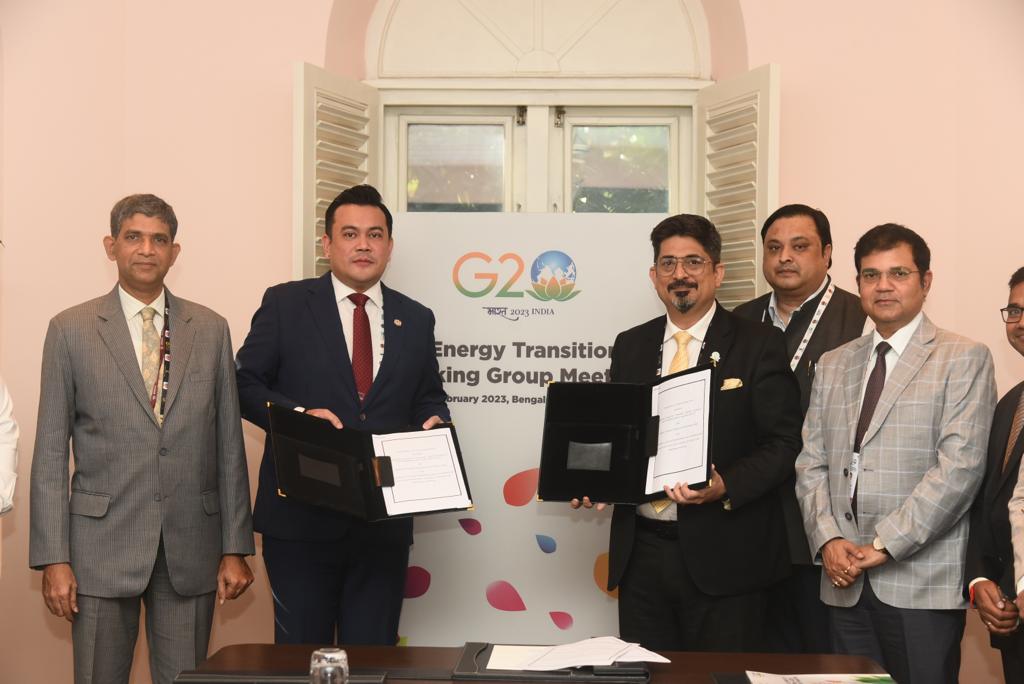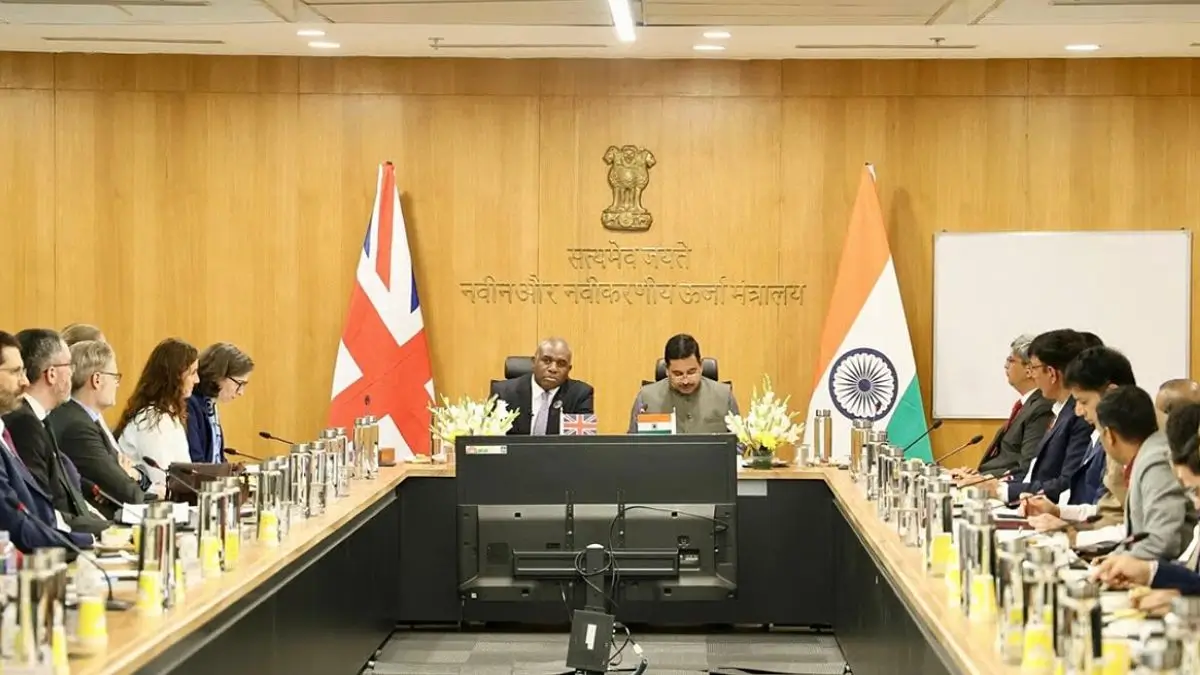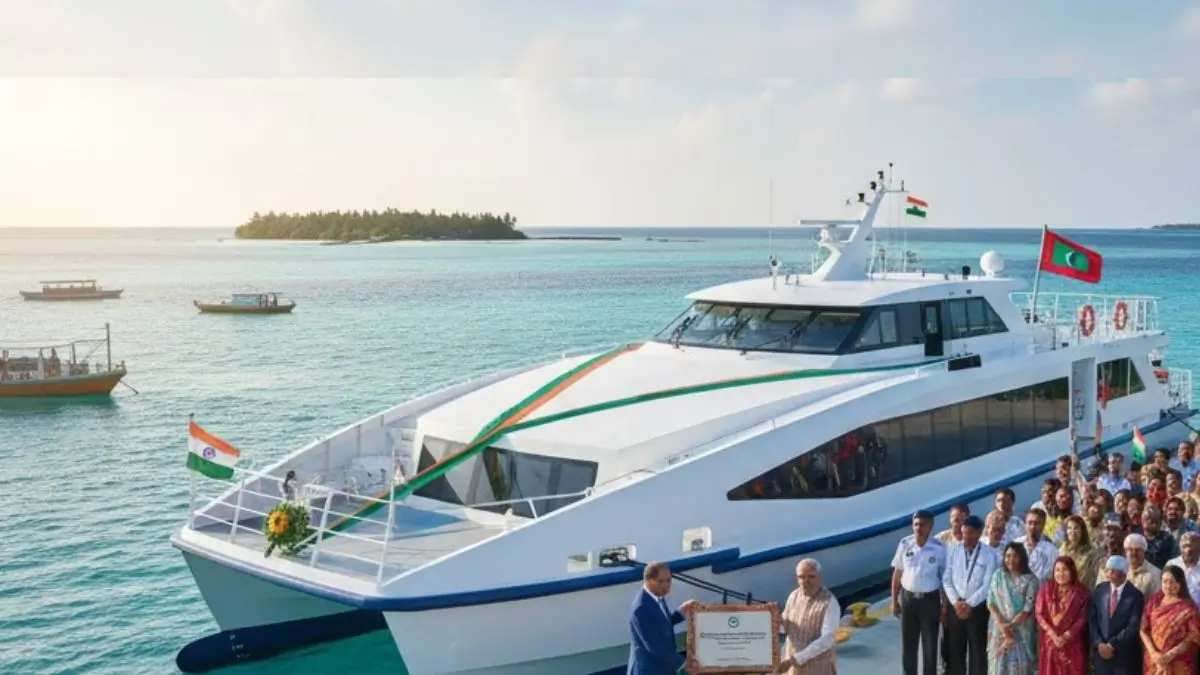India-Indonesia-Malaysia Growth Triangle : India signs MoU with Indonesia-Malaysia-Thailand Growth Triangle Joint Business Council to promote adoption of energy efficiency
The Indian government has signed a Memorandum of Understanding (MoU) with the Indonesia-Malaysia-Thailand Growth Triangle (IMT-GT) Joint Business Council (JBC) to promote energy efficiency in the region. The MoU was signed on April 11, 2023, during a virtual meeting between the representatives of the Indian government and the IMT-GT JBC.
The MoU aims to strengthen cooperation and collaboration between India and the IMT-GT JBC in the areas of energy efficiency, renewable energy, and clean energy technologies. The partnership will focus on promoting the adoption of energy-efficient practices and technologies, as well as creating opportunities for businesses in the energy sector to collaborate and share knowledge and expertise.
India and the IMT-GT JBC will also work towards developing joint projects and programs aimed at promoting energy efficiency in the region. The partnership is expected to play a key role in helping India achieve its energy efficiency goals and promoting sustainable development in the region.

Why this News is important
The signing of the MoU between India and the IMT-GT JBC is an important development for several reasons. Firstly, it highlights the growing importance of energy efficiency and clean energy technologies in the region. With concerns over climate change and the need to reduce greenhouse gas emissions, countries in the region are increasingly looking to adopt energy-efficient practices and technologies.
Secondly, the partnership between India and the IMT-GT JBC is expected to create opportunities for businesses in the energy sector to collaborate and share knowledge and expertise. This will help promote innovation and drive the development of new and improved energy-efficient technologies.
Finally, the partnership is expected to play a key role in helping India achieve its energy efficiency goals. The Indian government has set a target to reduce energy intensity by 33-35% by 2030. The partnership with the IMT-GT JBC will help India achieve this target by promoting the adoption of energy-efficient practices and technologies.
Historical Context
India has been taking several steps to promote energy efficiency and renewable energy in the country. The government has launched several initiatives, including the National Solar Mission and the National Mission for Enhanced Energy Efficiency, aimed at promoting the use of renewable energy and energy-efficient practices.
India has also been working with other countries in the region to promote sustainable development and address climate change. The signing of the MoU with the IMT-GT JBC is part of these efforts and is expected to help promote sustainable development in the region.
The IMT-GT is a sub-regional economic cooperation initiative between Indonesia, Malaysia, and Thailand. The initiative was established in 1993 to promote economic cooperation and integration in the region. The IMT-GT JBC was set up in 2005 to facilitate cooperation between businesses in the region.
Key Takeaways from “India signs MoU with Indonesia-Malaysia-Thailand Growth Triangle Joint Business Council to promote adoption of energy efficiency”
| S. No. | Key Takeaway |
|---|---|
| 1. | India signed a Memorandum of Understanding (MoU) with the Indonesia-Malaysia-Thailand Growth Triangle (IMT-GT) Joint Business Council (JBC) to promote energy efficiency in the region. |
| 2. | The partnership will focus on promoting the adoption of energy-efficient practices and technologies, as well as creating opportunities for businesses in the energy sector to collaborate and share knowledge and expertise. |
| 3. | India has set a target to reduce energy intensity by 33-35% by |
Important FAQs for Students from this News
Q1. What is the India-Indonesia-Malaysia Growth Triangle Joint Business Council?
A1. The India-Indonesia-Malaysia Growth Triangle Joint Business Council is a platform for promoting the adoption of energy efficiency in the industrial and commercial sectors of the participating countries.
Q2. What is the aim of the MoU signed between India, Indonesia, and Malaysia?
A2. The MoU aims to promote the adoption of energy efficiency measures in the industrial and commercial sectors of the participating countries.
Q3. What is the significance of the India-Indonesia-Malaysia Growth Triangle?
A3. The India-Indonesia-Malaysia Growth Triangle is a strategic economic cooperation initiative aimed at promoting economic growth and development in the participating countries.
Q4. What are the potential benefits of adopting energy efficiency measures in the industrial and commercial sectors?
A4. Adopting energy efficiency measures can lead to reduced energy consumption, lower costs, and reduced greenhouse gas emissions.
Q5. How can adopting energy efficiency measures contribute to sustainable development?
A5. Adopting energy efficiency measures can contribute to sustainable development by reducing greenhouse gas emissions, improving energy security, and promoting economic growth and development.
Some Important Current Affairs Links







